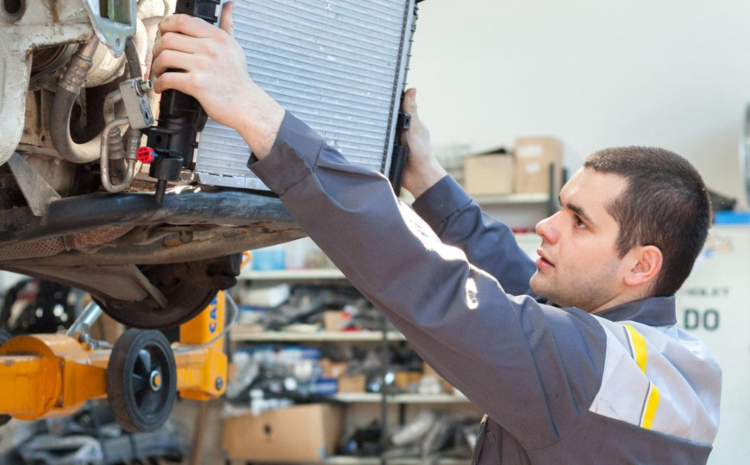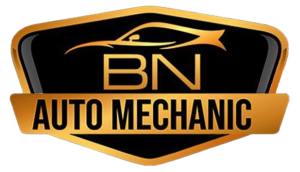
Radiator Replacement
Radiator Repair and Maintenance for Vehicles
Introduction
The radiator is a crucial component of a vehicle’s cooling system, responsible for regulating engine temperature and preventing overheating. Proper maintenance and timely repairs ensure the radiator functions efficiently, protecting the engine from potential damage. At BN Auto Mechanic, we specialize in professional radiator repair and maintenance services to keep vehicles running smoothly.
Radiator Repair
Radiator issues can arise due to leaks, blockages, corrosion, or physical damage. A malfunctioning radiator can lead to overheating, engine damage, and costly repairs.
Common Radiator Problems and Their Causes
- Coolant Leaks – Caused by worn-out hoses, cracked radiator tanks, or faulty seals.
- Overheating Engine – Can result from low coolant levels, a clogged radiator, or a failing thermostat.
- Rust and Corrosion – Occurs due to old coolant, air exposure, or lack of proper maintenance.
- Sludge Buildup – Contaminated coolant can lead to blockages that restrict fluid flow.
- Broken or Clogged Fins – Damaged or bent fins reduce heat dissipation, causing inefficient cooling.
Radiator Repair Procedures
- Leak Detection and Sealing – Identifying leaks and repairing them with sealants or replacing damaged components.
- Flushing the Radiator – Removing rust, dirt, and sludge to restore optimal flow and cooling efficiency.
- Replacing Worn-out Hoses and Clamps – Ensuring a tight seal to prevent leaks and pressure loss.
- Thermostat and Water Pump Inspection – Checking for malfunctions that may affect coolant circulation.
- Radiator Replacement – In cases of severe damage, a new radiator may be installed to ensure proper cooling.
Radiator Maintenance
Routine maintenance is essential to extend the life of the radiator and maintain engine performance. BN Auto Mechanic provides thorough inspections and servicing to keep the cooling system in top shape.
Essential Radiator Maintenance Practices
- Regular Coolant Checks and Refills
- Maintain proper coolant levels to prevent overheating.
- Use the correct coolant type recommended for the vehicle.
- Flushing the Radiator System
- Flush the radiator every 30,000-50,000 miles or as per manufacturer recommendations.
- Removes contaminants that can cause blockages and corrosion.
- Inspecting Hoses and Clamps
- Check for cracks, leaks, or loose connections.
- Replace worn-out hoses before they fail.
- Cleaning the Radiator Exterior
- Remove dirt, debris, and bugs from radiator fins to improve airflow and cooling.
- Straighten bent fins to maintain efficient heat dissipation.
- Checking for Leaks and Corrosion
- Regularly inspect for rust, cracks, or leaks in the radiator and coolant reservoir.
- Use corrosion inhibitors to prolong radiator life.
- Monitoring Engine Temperature
- Keep an eye on the temperature gauge for signs of overheating.
- Address any abnormal temperature rises promptly.
Conclusion
A well-maintained radiator is vital for a vehicle’s cooling system and overall engine health. Regular servicing, coolant flushes, and timely repairs help prevent overheating, improve performance, and extend the radiator’s lifespan. BN Auto Mechanic offers expert radiator repair and maintenance services to ensure vehicles operate at optimal temperatures, preventing costly engine damage and enhancing driving reliability.
